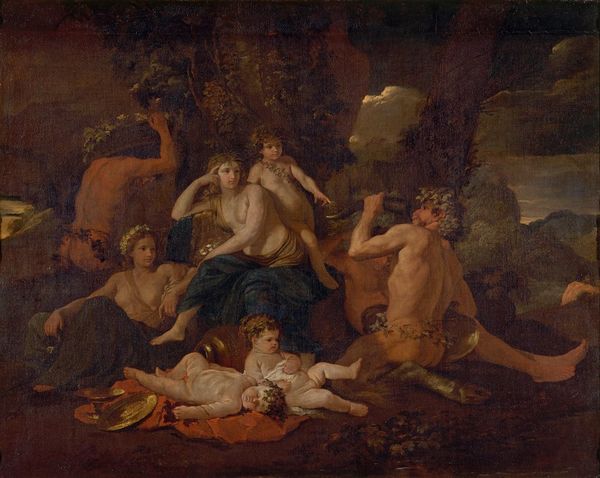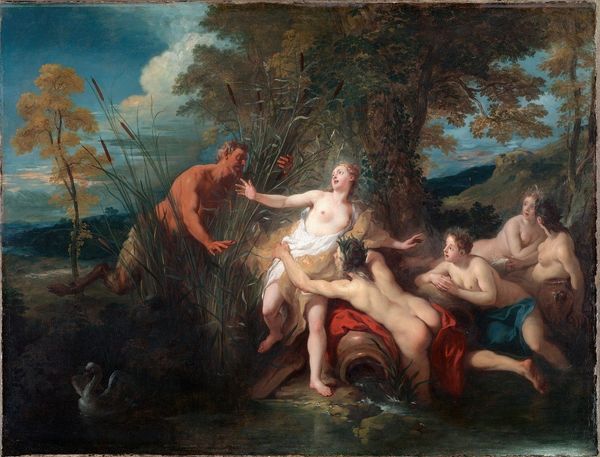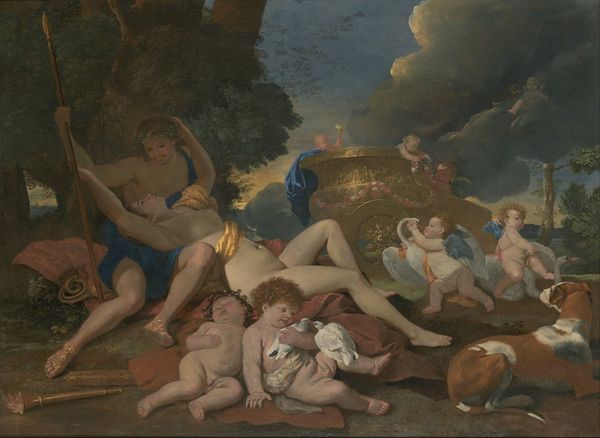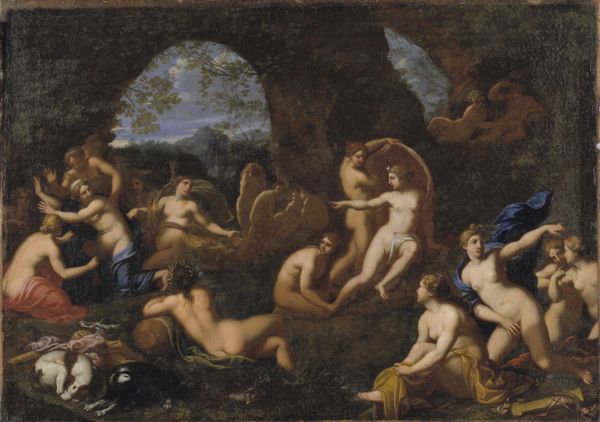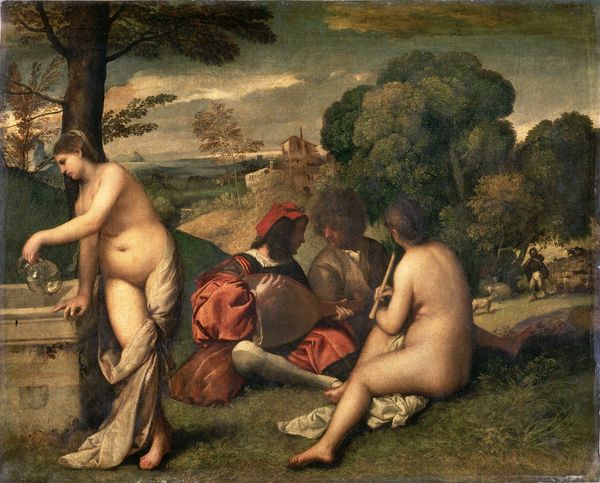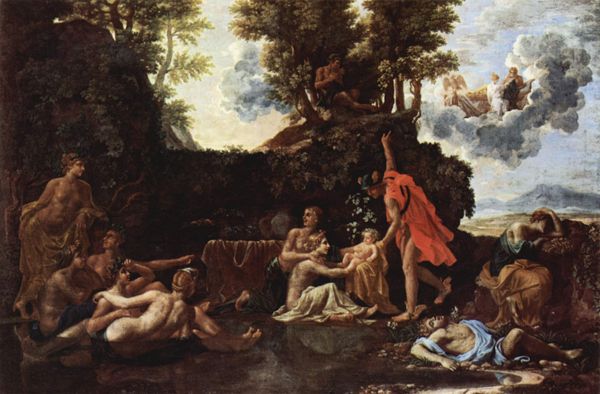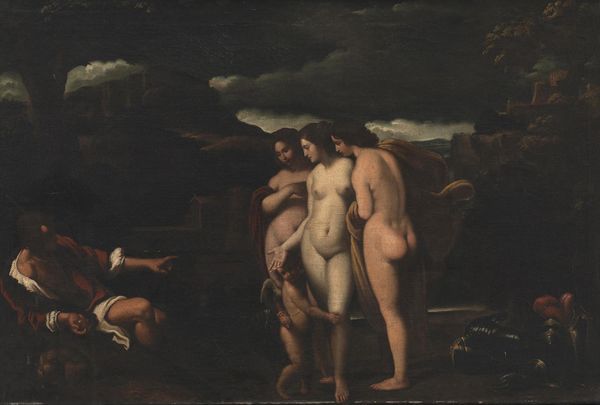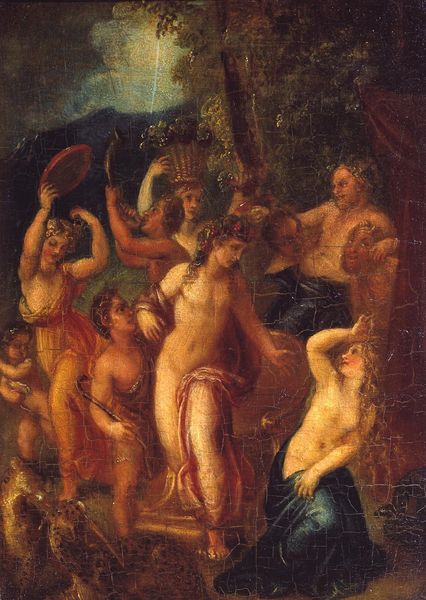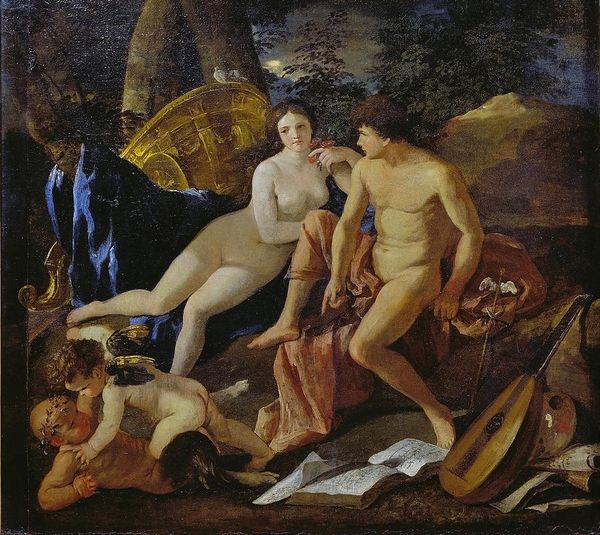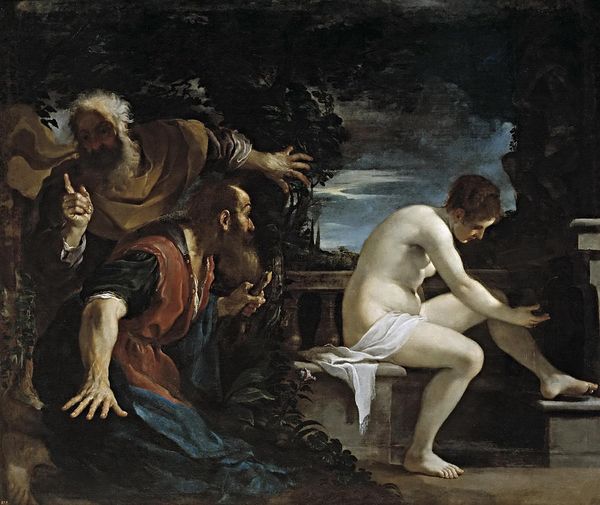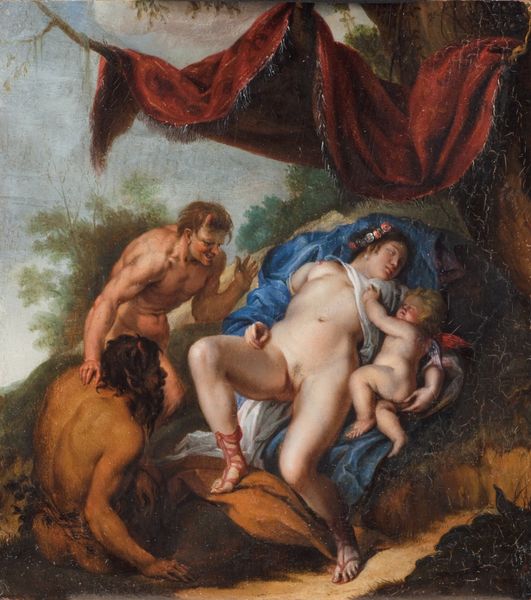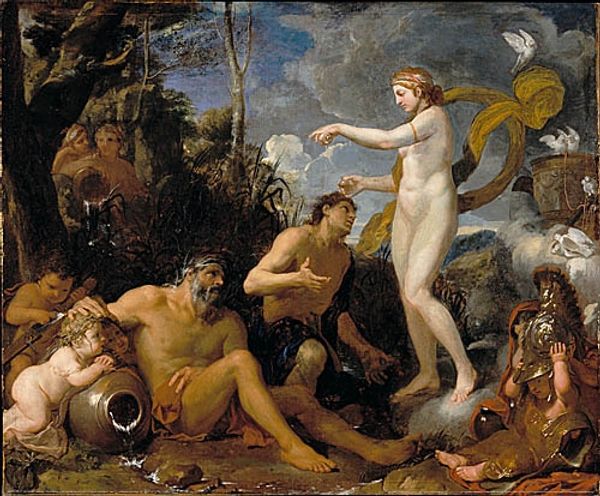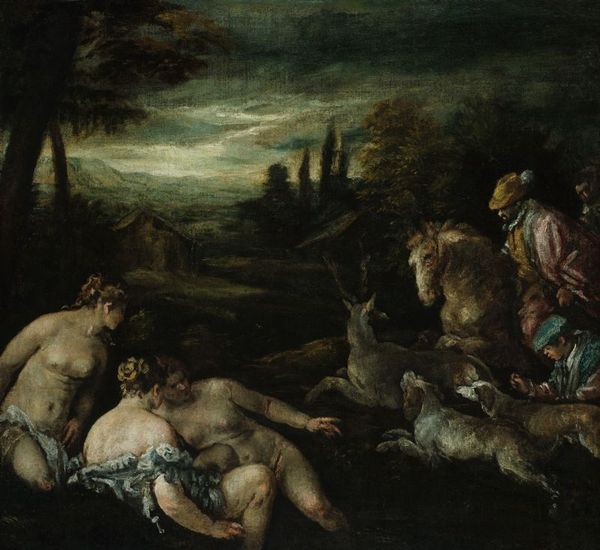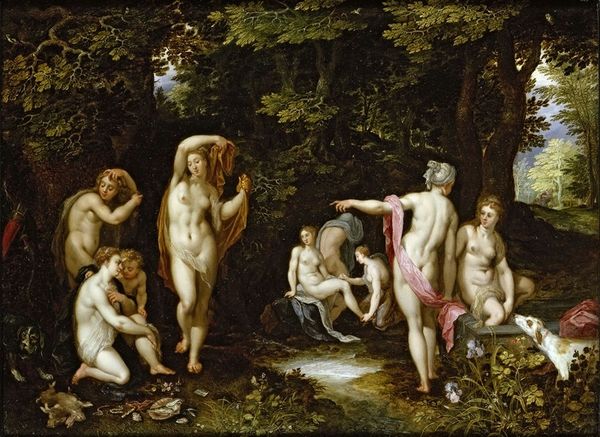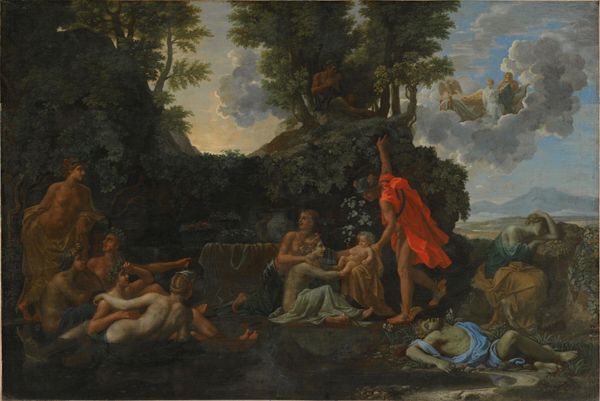
oil-paint
#
baroque
#
oil-paint
#
landscape
#
figuration
#
oil painting
#
roman-mythology
#
mythology
Dimensions: 72 x 96.5 cm
Copyright: Public domain
Nicolas Poussin painted “Narcissus and Echo” in the mid-17th century, employing oil on canvas. The painting brings to life a classical myth, imbuing it with the aesthetic and philosophical ideals of its time. The painting's meaning is created through visual codes rooted in the culture of Baroque-era Europe. In Poussin's France, classical stories were used to explore human psychology, morality, and social order. The depiction of nudity, landscape, and mythological narrative reflected both the artistic conventions of the time and the cultural values of the elites who were Poussin's patrons. Consider the role of the French Academy, which promoted classical ideals and decorum in the arts, influencing what was considered acceptable and desirable in artistic expression. Was Poussin simply illustrating a well-known story or was he commenting on the social structures of his time? To fully understand Poussin's work, we might consult historical texts, letters, and academic treatises. The meaning of art is always contingent on its social and institutional context.
Comments
No comments
Be the first to comment and join the conversation on the ultimate creative platform.
